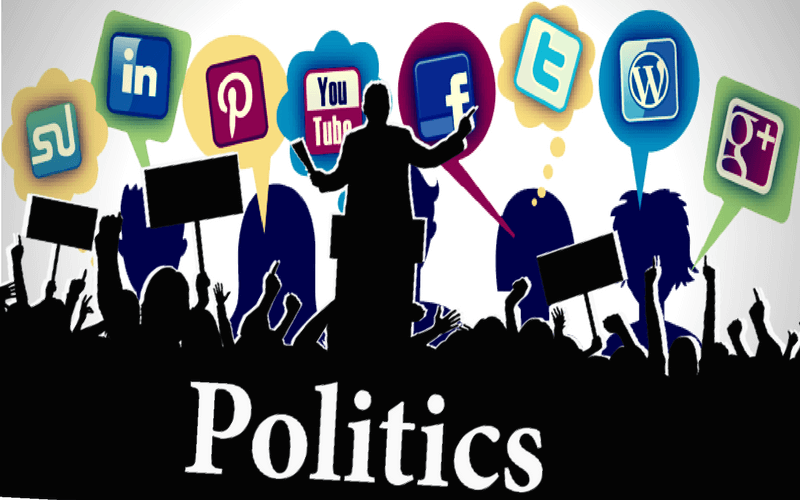- 25 July 2024
- 243
The Role of Social Media in Modern Politics

In the digital age, social media has emerged as a powerful tool influencing various aspects of life, including politics. The advent of platforms like Facebook, Twitter, Instagram, and YouTube has revolutionized how political messages are disseminated, how politicians engage with the public, and how citizens participate in political discourse. This article delves into the multifaceted role of social media in modern politics, examining its impact on political campaigns, public engagement, and the spread of misinformation, while providing a detailed analysis and comparative overview.
The Rise of Social Media in Politics

Social media’s involvement in politics began in earnest in the early 2000s. Political campaigns quickly recognized the potential of these platforms for reaching voters directly and efficiently. The 2008 U.S. presidential campaign of Barack Obama is often cited as a watershed moment, where social media was used extensively for fundraising, organizing volunteers, and mobilizing voters. This success story demonstrated the power of social media in modern politics and set a precedent for future campaigns globally.
Platforms and Their Unique Influences
Different social media platforms offer unique benefits and challenges for political engagement. Facebook, with its extensive user base, provides a platform for detailed posts and targeted advertising. Twitter, known for its brevity, allows for rapid dissemination of information and real-time interaction. Instagram and YouTube, focusing on visual content, are effective for personalizing politicians and humanizing their campaigns. Each platform’s distinct characteristics influence how political messages are crafted and delivered.
Political Campaigns and Social Media
Social media has transformed campaign strategies, enabling more personalized and direct voter outreach. Political candidates and parties use data analytics to target specific demographics, tailoring messages to resonate with different voter segments. This targeted approach increases engagement and voter turnout, as seen in various elections worldwide.
Fundraising and Mobilization
Crowdfunding through social media platforms has become a significant aspect of modern political campaigns. Candidates can raise substantial amounts of money through small donations from a large number of supporters. Moreover, social media is instrumental in mobilizing volunteers, organizing events, and coordinating grassroots activities.
Public Engagement and Participation
Social media platforms have created new communication channels between politicians and citizens. Politicians can share their views, respond to questions, and engage in discussions directly with the public. This direct interaction fosters a sense of connection and transparency, potentially increasing public trust in political figures.
Citizen Journalism and Political Activism
Social media empowers ordinary citizens to become journalists and activists. People can report events, share opinions, and mobilize support for causes quickly and efficiently. This phenomenon has given rise to movements like the Arab Spring and Black Lives Matter, where social media played a crucial role in organizing protests and spreading awareness.
The Dark Side: Misinformation and Polarization
While social media offers many benefits, it also presents significant challenges, notably the spread of misinformation and fake news. False information can spread rapidly on these platforms, influencing public opinion and potentially affecting election outcomes. The viral nature of social media makes it difficult to control and correct misinformation once it starts circulating.
Echo Chambers and Polarization

Social media can contribute to political polarization by creating echo chambers, where users are exposed primarily to information that reinforces their existing beliefs. Algorithms that curate content based on user preferences can limit exposure to diverse perspectives, deepening ideological divides and reducing the likelihood of constructive political dialogue.
Regulatory and Ethical Considerations
The role of social media in politics raises questions about the responsibility and accountability of platform providers. There is an ongoing debate about how these companies should regulate political content, prevent misinformation, and ensure fair and transparent electoral processes. Regulatory frameworks are being developed in various countries to address these issues, but finding a balance between regulation and freedom of expression remains a challenge.
Ethical Use of Social Media in Politics
Ethical considerations are paramount in the use of social media for political purposes. Politicians and campaigners must navigate issues related to privacy, data security, and the manipulation of public opinion. Ensuring ethical standards in digital political campaigns is crucial for maintaining the integrity of democratic processes.
Analysis Table
The following analysis table summarizes the key aspects of social media’s role in modern politics:
| Aspect | Description | Impact |
| Campaign Strategy | Use of data analytics for targeted messaging | Increased engagement and voter turnout |
| Fundraising | Crowdfunding through small donations | Significant financial support for campaigns |
| Public Engagement | Direct interaction between politicians and citizens | Enhanced transparency and trust |
| Citizen Journalism | Empowerment of individuals to report and share political events | Rapid dissemination of information |
| Misinformation Spread | Propagation of false information | Potential influence on public opinion and election outcomes |
| Polarization | Creation of echo chambers limiting exposure to diverse perspectives | Deepened ideological divides |
| Platform Accountability | Debate on regulation and responsibility of social media companies | Development of regulatory frameworks |
| Ethical Considerations | Issues related to privacy, data security, and public opinion manipulation | Need for ethical standards to maintain democratic integrity |
Comparative Table
| Aspect | Positive | Negative |
| Campaign Strategy | Personalized and efficient voter outreach | Potential for manipulation through targeted ads |
| Fundraising | Democratization of campaign financing through small donations | Risk of reliance on online fundraising |
| Public Engagement | Direct communication fostering transparency | Overreliance on social media for political engagement |
| Citizen Journalism | Rapid and widespread dissemination of information | Difficulty in verifying accuracy of information |
| Misinformation Spread | Quick correction through community fact-checking | Viral spread of fake news before correction is possible |
| Polarization | Strengthening of community bonds within ideological groups | Increased political polarization and division |
| Platform Accountability | Development of policies to ensure fair and transparent political processes | Challenges in balancing regulation with freedom of expression |
| Ethical Considerations | Emphasis on ethical use to protect democratic integrity | Ethical breaches such as data misuse and manipulation of public opinion |
Conclusion
Social media undeniably plays a crucial role in modern politics, offering both opportunities and challenges. Its ability to facilitate direct communication, mobilize support, and enhance public engagement has transformed political landscapes globally. However, the spread of misinformation, creation of echo chambers, and ethical concerns present significant hurdles that need to be addressed. Balancing the benefits and risks of social media in politics requires ongoing efforts from policymakers, platform providers, and society as a whole to ensure that democratic processes are upheld and strengthened in the digital age.

